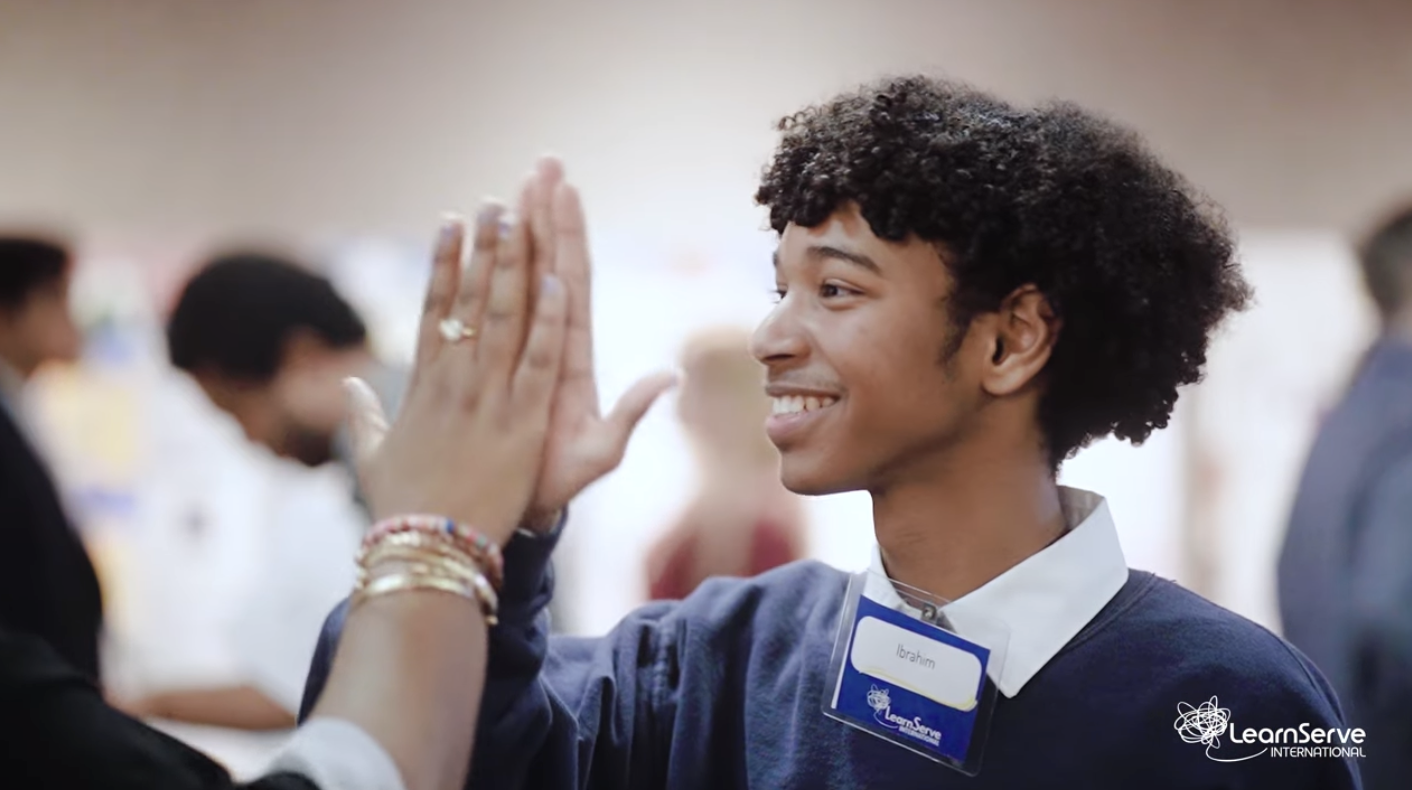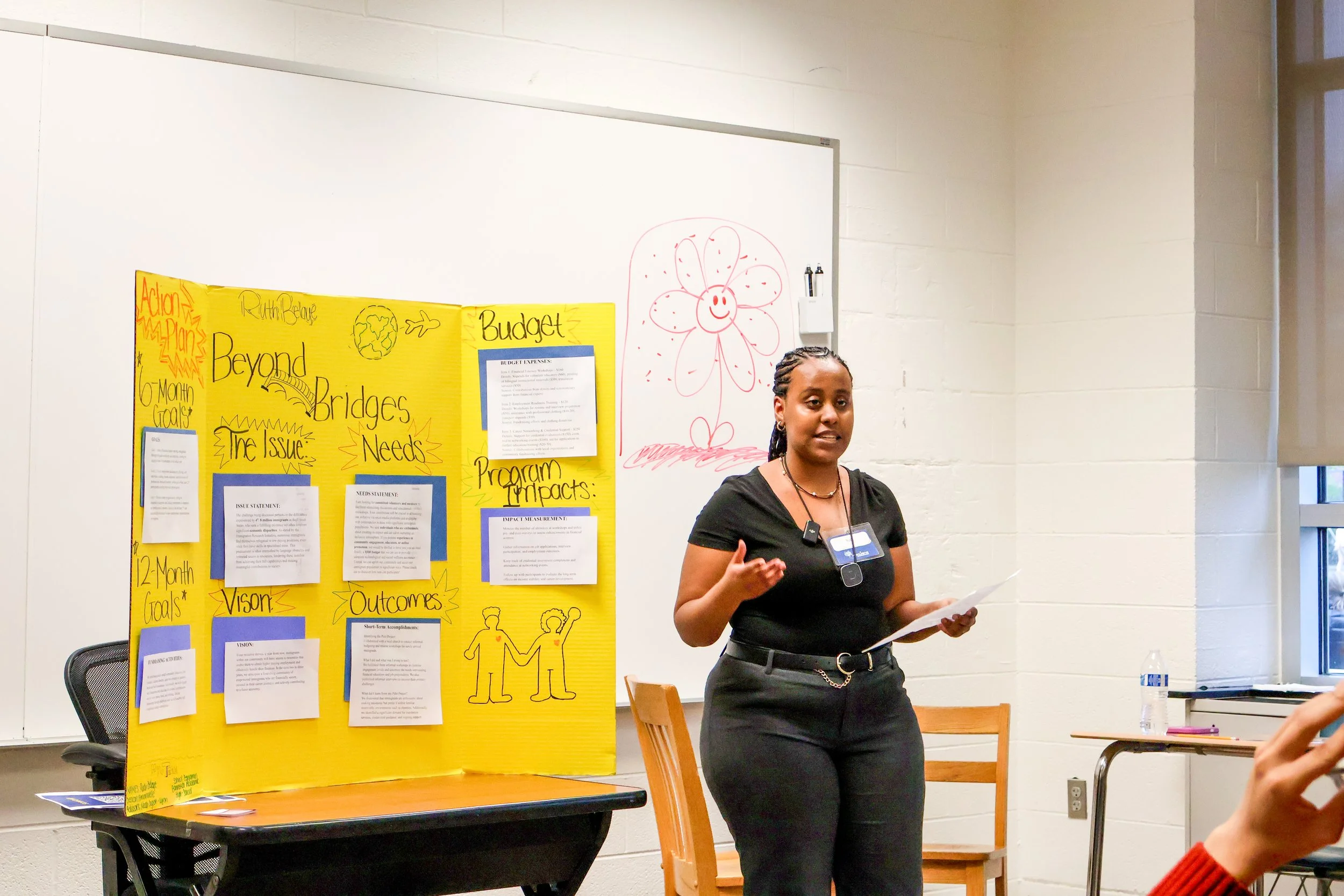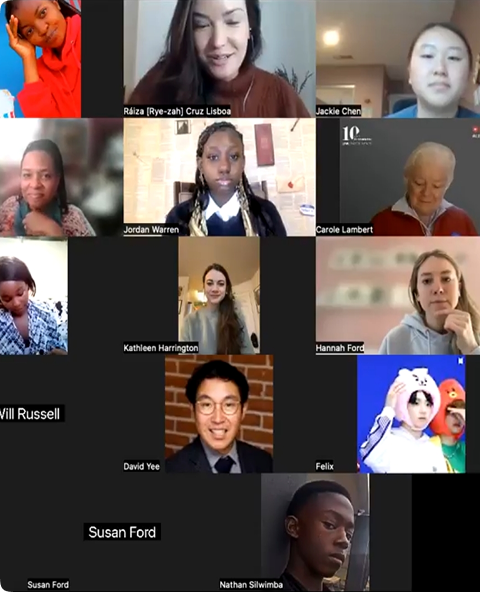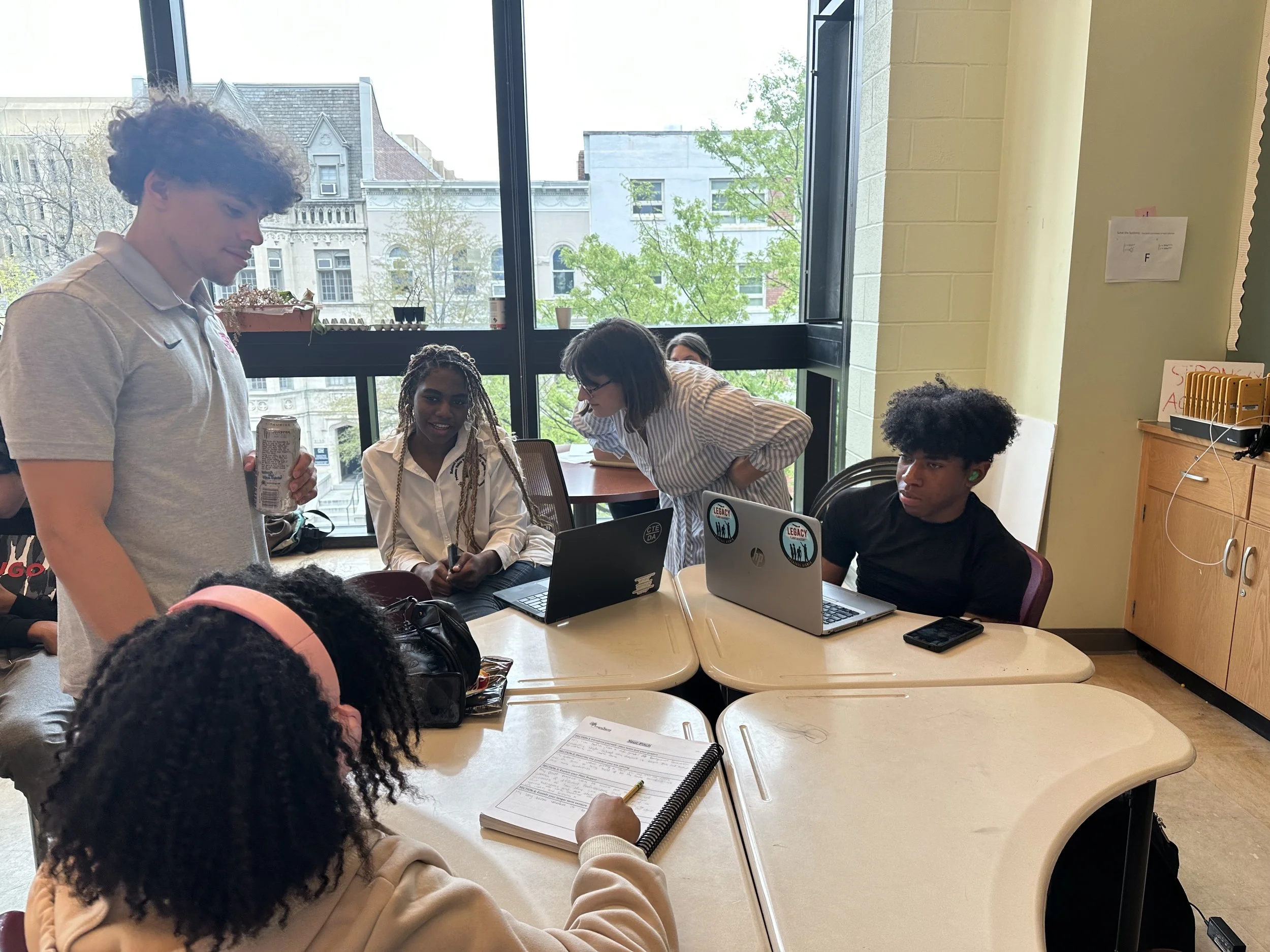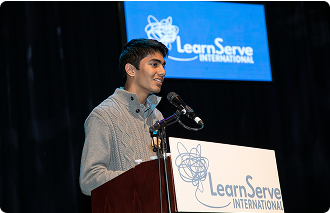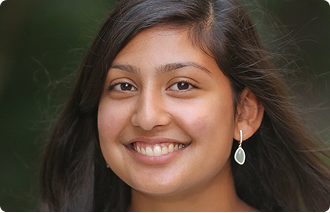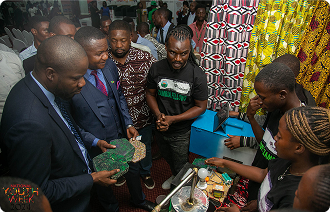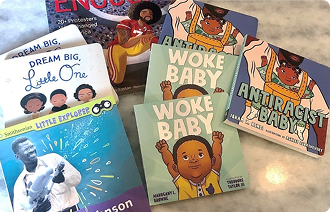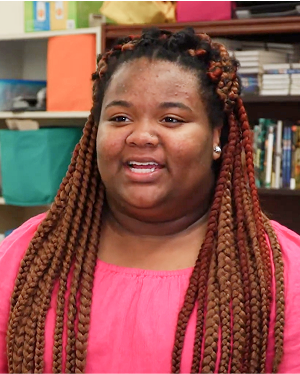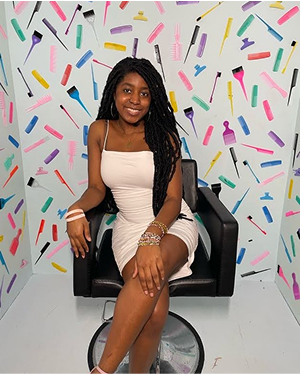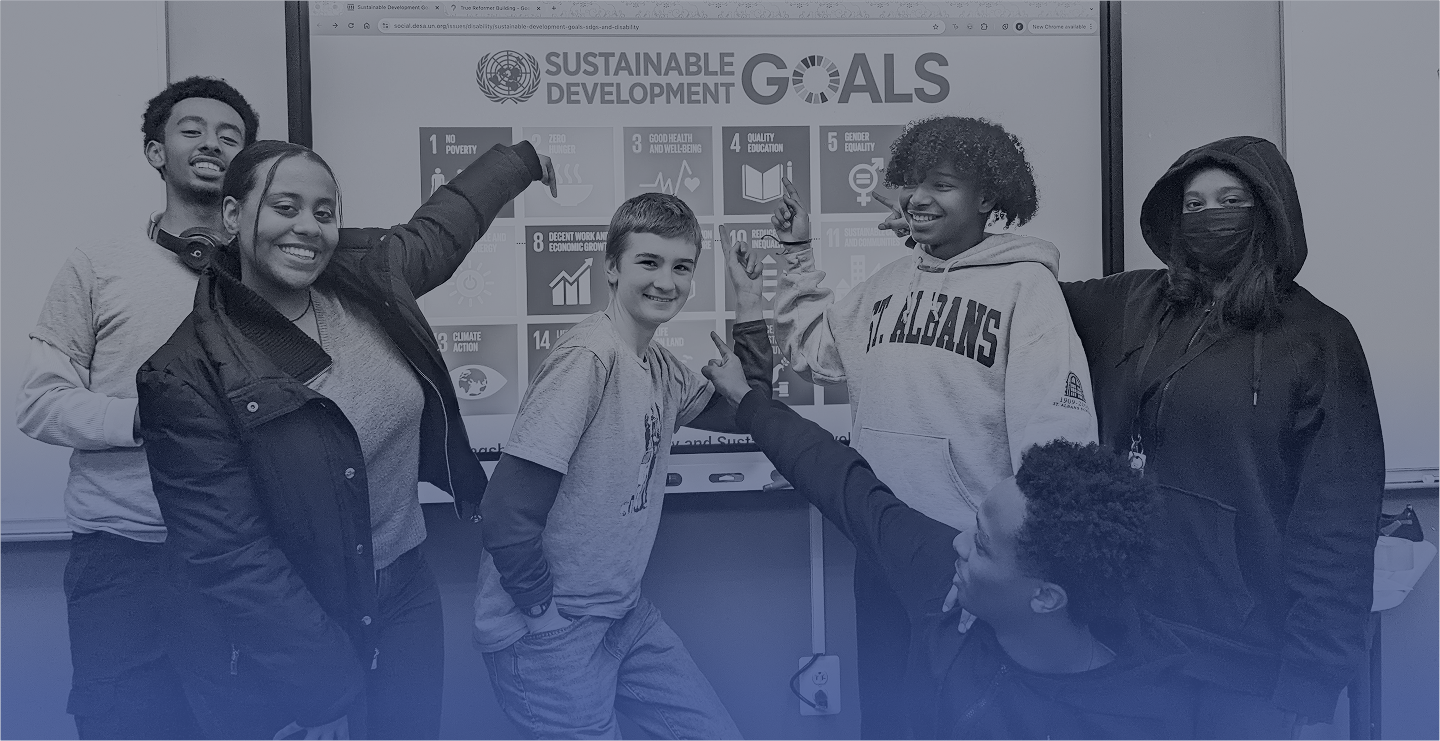
Our Programs
Explore our interconnected programs—Fellows, Incubator, and LearnServe Global—to turn your passion into action.
Program Overview
Our programs bring together young people from diverse backgrounds with untapped leadership potential and a strong desire to create change. We help them develop a sense of agency and purpose through leadership and social entrepreneurship training.
Fellows
YEAR 1
Launch your changemaking journey here.
Incubator
YEAR 2
Deepen your impact with a global cohort
LearnServe Global
SUMMER CAPSTONE
Collaborate during a life-changing travel experience
Welcome to LearnServe
There’s a lot in the world to be concerned about these days. Are you ready to take action? You’ve come to the right place. Let’s get started!
Year 1 | LearnServe Fellows Program
Your Changemaking Journey Starts Here!
Over 7 months, we’ll prepare you to design, pitch, and launch your own social action project to serve your community! Through dynamic workshops, mentors, and speakers you’ll learn all the skills you need to lead your own social venture.
Available in Washington D.C. region, United States; Lusaka, Zambia; and Batan, Costa Rica.
Weekly sessions from October - April
This is the program for you if:
You are frustrated by global and local injustices, but are unsure how to take action
Have an idea to benefit your community, but don’t know where to start
Want a unique opportunity for hands-on learning (P.S. - U.S. students, you can earn community service hours!)
Apply Now
Year 2 | LearnServe Incubator Program
Deepen your impact and global perspective.
Dive deep into customer discovery and minimum viable product as refine your project and pitch. For students who have completed the LearnServe Fellows Program (or equivalent) and are ready to join peers from around the world for a year of research, development, project implementation, and cross-cultural exchange. You’ll be paired with a Venture Mentor to support you through the year.
Available virtually for students in Washington D.C. region, United States; Lusaka, Zambia; and Batan, Costa Rica.
Weekly sessions from October - April
This is the program for you if:
You were inspired during the Fellows program, and are ready to expand your venture, or create something new
Have a solid idea about what you want to accomplish, but need further guidance to overcome obstacles
Are ready for an intensive year of growth and want a tight-knit global community to grow with you
Capstone | LearnServe Global
Experience the power of travel and global exchange.
Meet your LearnServe Incubator peers through a 2-week cultural and learning exchange in Lusaka, Zambia or Batan, Costa Rica. Building on 20 years facilitating international travel experiences, LearnServe Global brings together graduates of the Incubator Program for shared learning and service.
Two weeks (June - July)
What to expect:
Hands-on Social Impact:
Visit nonprofit organizations to gain a deeper understanding of social entrepreneurship in a global context.Collaborative Action:
Fundraise, plan, and implement a community action project that directly benefits a local community.Meaningful Connections:
Strengthen bonds with LearnServe peers you’ve met through the Incubator, sharing experiences and learning from one another.
Application Process
Submit your application and we will follow up.
The application process is simple. We ask for basic contact information and short reflections on the following questions (2-3 sentences to each will suffice):
What is something that you have accomplished this year that you are proud of and why?
What improvements would you like to see in your school or community, and why?
Describe a time when you overcame a challenge or obstacle, and how?
If you have questions about the application process, email programs@learn-serve.org.
Cost
Fellows and Incubator are free for DCPS and DC Public Charter School students.
Tuition for other U.S. students is determined by a sliding-scale tuition model, based on ability to pay. No participant will be turned away due to a family’s financial situation.
LearnServe is committed to ensuring our leadership, social entrepreneurship, and global experiences are accessible to all students, regardless of individual circumstances.
Program Benefits
Small cohort sizes
Learn about social entrepreneurship and develop a venture that benefits your school or community.
1-on-1 Meetings
Personal guidance with a student success advocate to support your growth.
Mentorship
Connect with experienced advisors who provide expert insights and guidance.
Local & Global Community
Join a diverse network of peers passionate about creating positive change.
Funding Opportunities
Access resources to fund and implement your venture in real-world settings.
LearnServe Method
Our programs are built around the LearnServe Method, our 5-phase introduction to social entrepreneurship.
Phase 1
-
Introduction to social entrepreneurship: Understanding the principles and basics of creating solutions to address social injustices.
Exploring identity and inclusive communities: Understanding your identity, biases, and tools for effective communication.
The U.N. Sustainable Development Goals (SDGs): Connecting global frameworks to local action for social change.
Phase 2
-
Identifying and refining a social problem: Selecting a social or environmental injustice to focus on, and a root cause or consequence to address.
Customer discovery and human-centered design: How to interview or survey others effectively to effectively understand the issue from their point of view.
Phase 3
-
Imagining creative solutions: Learn to ideate around meeting your beneficiary’s needs.
Prototyping and designing pilot projects: Learn to design viable approaches.
Developing Minimum Viable Products (MVPs): Understanding the importance of testing smaller versions of your venture to gather feedback and improve.
Phase 4
-
Launching your project: Bring your idea to life with a pilot project - a smaller version of your venture to gather feedback and improve.
Fundraising and resource mapping: Understanding fundraising and strategies for securing resources for your social venture.
Measuring impact: Learning how to assess the success of your project through data and feedback.
Phase 5
-
Planning for the future: Prepare a budget and long-term plan to ensure continued growth and success of your social venture after our programs.
Effective communication: Craft your public speaking skills and a compelling pitch - then present your project to potential partners and investors.
Learning Outcomes
LearnServe empowers young people to take action.
Participants hone their personal and professional skills as civic leaders and global citizens.
Gain a comprehensive understanding of local and global social injustices.
Acquire hands-on experience in creating prototypes and minimum viable products, developing practical solutions for real-world problems.
Graduate with project management skills, a solutions-oriented mindset, and confidence in your strengths and talents.
Connect local social issues to the U.N. Sustainable Development Goals (SDGs), demonstrating the connection between global challenges and local solutions.
Master the art of the elevator pitch and become proficient in public speaking, equipping you with the tools to share your ideas with confidence.
Collaborate with peers from different backgrounds, with a focus on intersectionality and cross-cultural understanding.
Project Examples
kTrace:
An app to track the spread of infectious disease using Bluetooth technology.
By Rohan Suri (Fellows DC ‘15), who has gone on to be named on Forbes 30 under 30 twice.
Fresher Choice:
A venture bringing fresh produce to residence in Ward 7.
By Shirin Ghorbani (Fellows DC ‘21), featured in Bethesda Magazine
Food Processing
Turning discarded produce into delicious relishes, juices, and jams.
.By Ariel Phiri (Fellows Zambia ‘23), whose prototypes have been selling well!
Jojo’s Outstanding Jojoba Oil:
A hair care line fighting natural hair discrimination and advocating for ingredient safety in hair care products marketed to Black women.
By Adjo Evonlah (Fellows DC ‘21, Incubator ‘22), recognized as one of six finalists in Towson University’s inaugural Innovation Cup Challenge.
HER Education:
An organization that has now built 13 libraries serving 20,000 students at girls schools in Pakistan and Morocco.
Created by Hannah Ford and Zoha Siddiqui (Incubator ‘17), honored as winners of the Top 30 Changemaker Challenge Awards from T-Mobile, a nationwide search for young innovators!
Project Infinity:
A solar-powered charger for phones, laptops, and light bulbs to provide an alternative energy source during load-shedding (rolling blackouts) in Zambia.
Created by Chama Bunda and Chriad Kawamwilu (Fellows DC ‘23, Incubator ‘24)
Eco-Recycle:
A process upcycling plastic waste into floor tiles, fighting plastic pollution and creating employment opportunities.
By Safi and Joyce Chibwe (Fellows Zambia ‘23, Incubator ‘24)
ScholarCHIPS:
A nonprofit that has provided over $500,000 in college scholarships and supports to college-bound young adults who have incarcerated parents.
By Yasmine Arrington (Fellows DC ‘11)
Boosted Reading:
A venture ensuring DC elementary school students have access to books by and about people of color.
By Nia Brown (Incubator ‘21)
